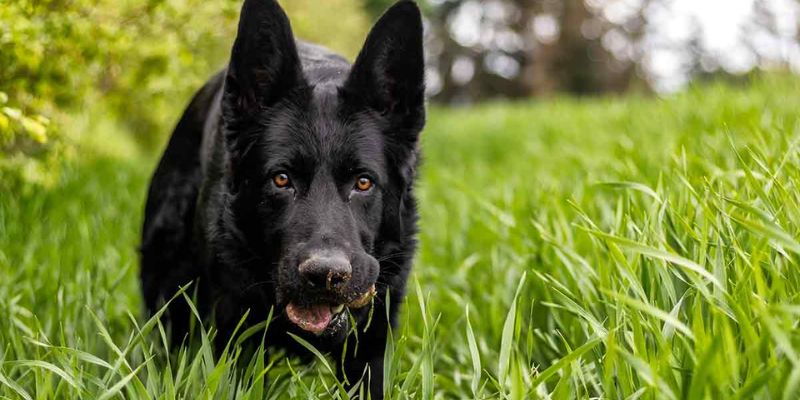We hope you like this in-depth look at White Black Shepherds and their natural instinct to hunt. In this post, we’ll investigate “Do White Black Shepherds Have a High Prey Drive?”. It’s important to know what to expect from a White Black Shepherd before bringing one into your home. Let’s just jump in, shall we?
Recognizing the Prey Drive
It’s vital to understand “prey drive” before discussing whether or not White Black Shepherds have a high prey drive. The term “prey drive” describes a dog’s innate motivation to hunt tiny creatures. It’s a genetic quirk that can differ widely between canine breeds and even between individual canines.
Breeds of White and Black Shepards
White Black Shepherds are renowned for their devotion, adaptability, and protective temperament, and are also a stunningly beautiful and intelligent breed. They look and act like regular German Shepherds but are a different color. Many people have fallen in love with these magnificent dogs because of their one-of-a-kind appearance and extraordinary working qualities.
Do White Black Shepherds Have a High Prey Drive?
It is important to take into account a wide range of potential confounding variables when assessing White Black Shepherds’ prey drive. While a person’s disposition and training go a long way, it can be helpful to learn about breed peculiarities.
Ancestry and Genetics
Both the White Black Shepherd and the German Shepherd may trace their history back to the original purpose for which both breeds were developed: working and herding. Herding dogs are bred to chase and control animals, thus it stands to reason that they have a modest prey drive. However, White Black Shepherds’ hunting drive can differ greatly according on their genetics and other personal traits.
Training and Socialization
The prey drive of a White Black Shepherd can be shaped through early socialization and training. Potential behavioral disorders can be lessened with early exposure to a variety of settings, people, and animals. Obedience instruction from a professional can also help them channel their natural tendencies in a positive direction.
Characteristics
All dogs, like all people, are different. Due to their disposition, certain White Black Shepherds may display a larger prey drive than others. Some people may only have a slight urge to hunt. Each dog is unique, and must be evaluated and trained properly.
Controlling White and Black Shepherds’ Prey Drive
There are a number of methods you can use to control your White Black Shepherd’s prey drive.
Restricted Viewing
Your White Black Shepherd should be introduced to rodents, rabbits, and other small animals in a controlled setting over time. They can learn to control their impulses and behave appropriately with the support of supervised interactions.
Divert and Reroute
If you see your White Black Shepherd exhibiting signs of high prey drive, distract them with a fun game or toy. Focusing on something else can help the person forget about the trigger.
Reinforcement Learning
Positive reinforcement is an effective training method. Treats, praise, and play can all be used as positive reinforcement methods to encourage actions that are in line with your expectations.
Professional Advice
Seeking the advice of a professional dog trainer or behaviorist can provide helpful insights and individualized tactics for taming your White Black Shepherd’s predatory drive.
Conclusion
In conclusion, White Black Shepherds’ prey drive can differ depending on factors including their genetics, upbringing, and personality. Their German Shepherd heritage may give them a mild prey drive, but with the right management, training, and socialization, they can learn to channel those tendencies in positive ways. In order to live peacefully with your White Black Shepherd, you must first understand and then treat its prey drive.
Always keep in mind that your dog is an individual, and treat his or her training and behavior management needs with the love, consistency, and patience they deserve.

